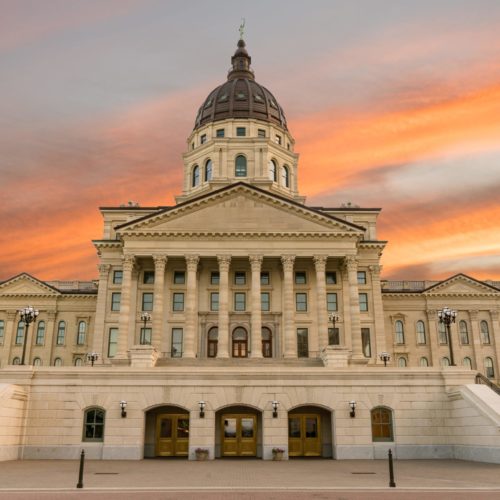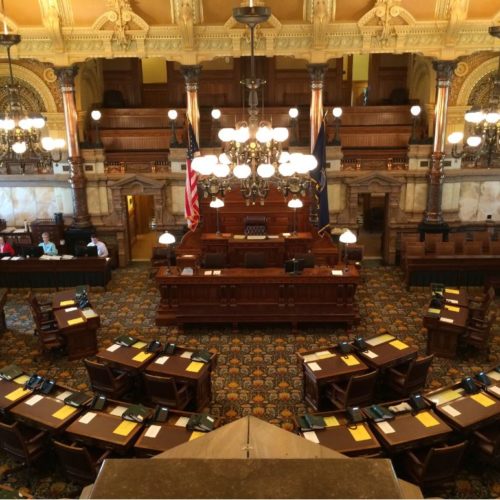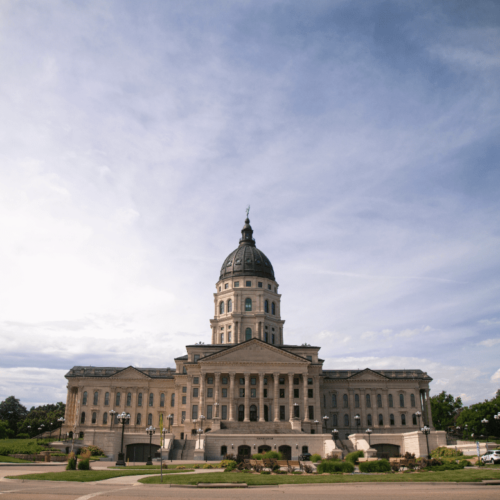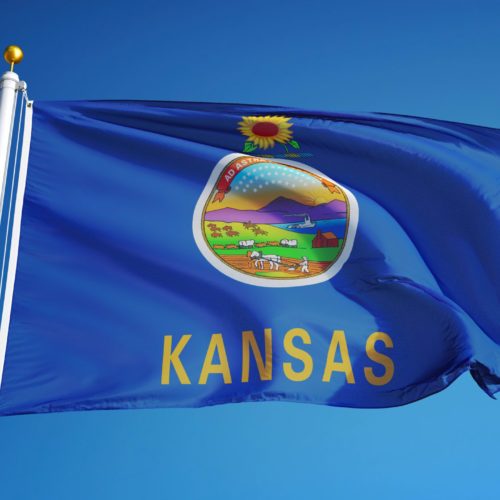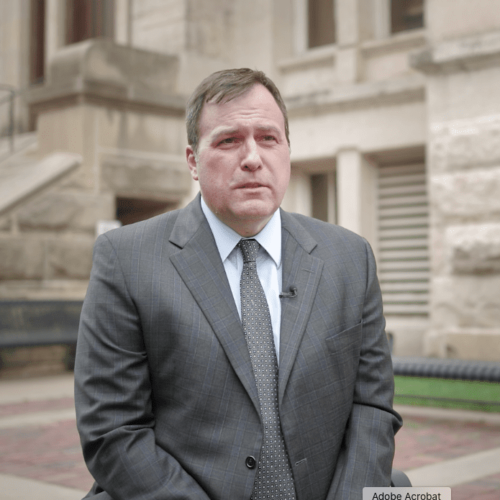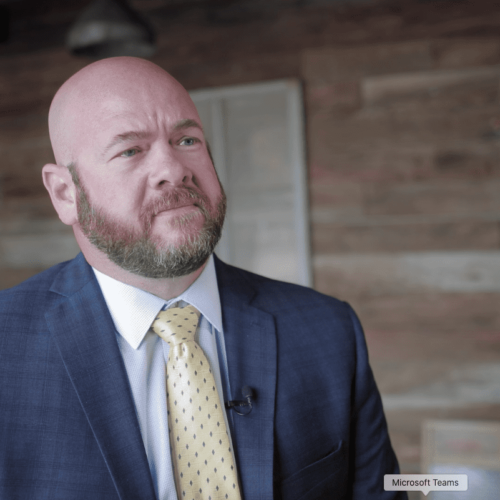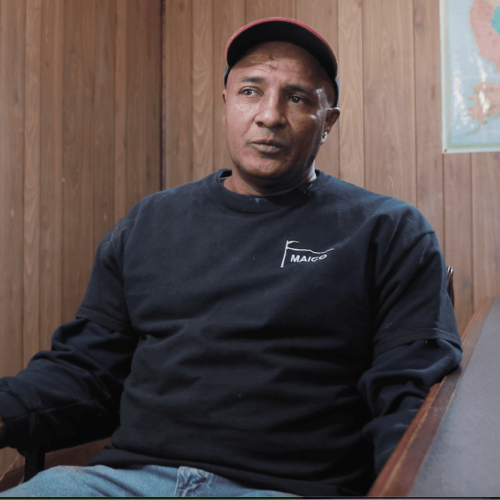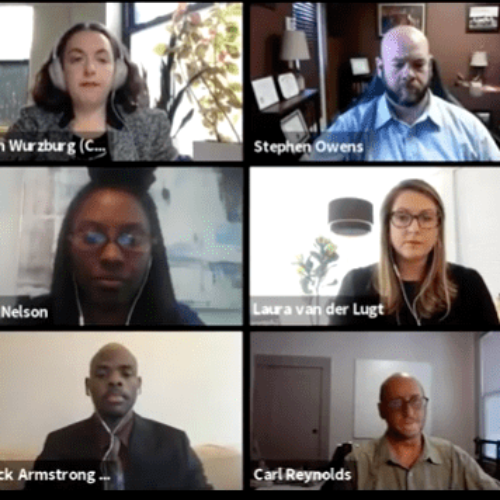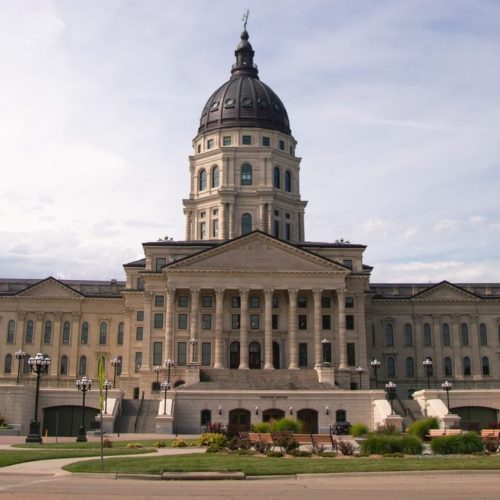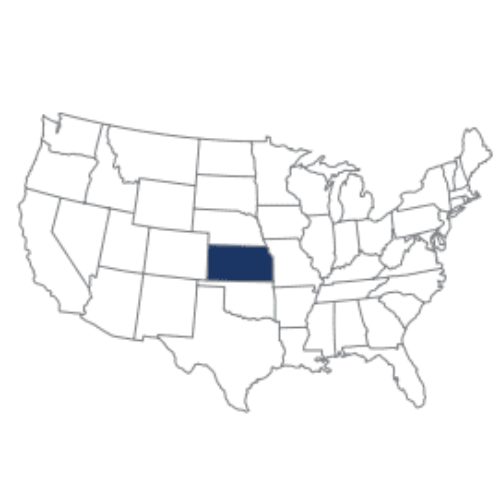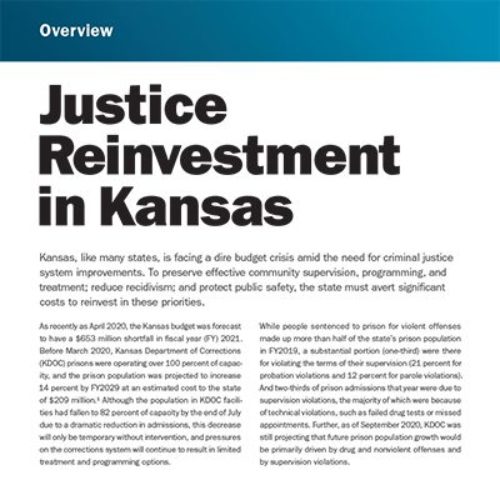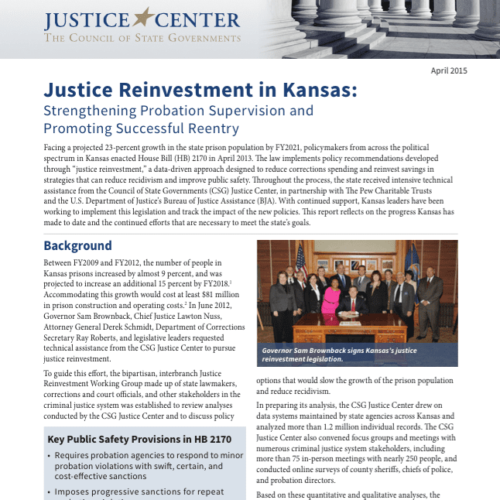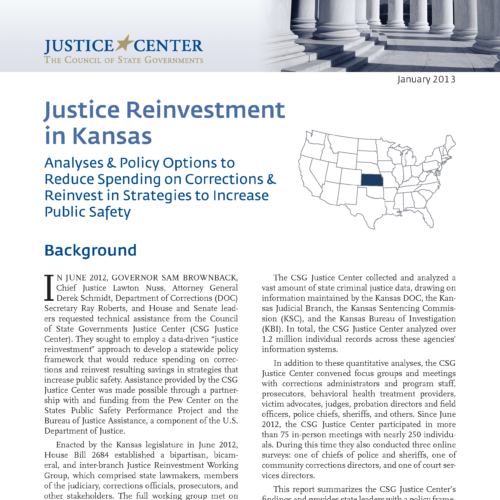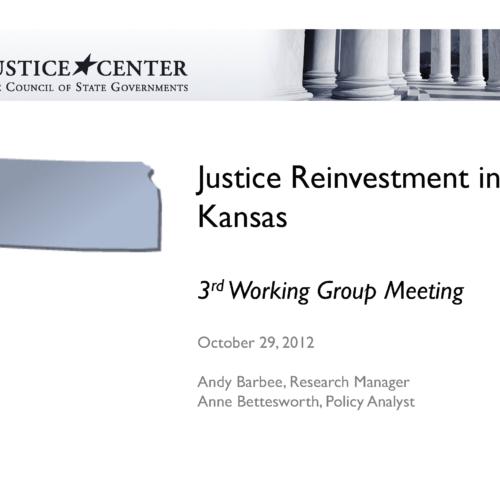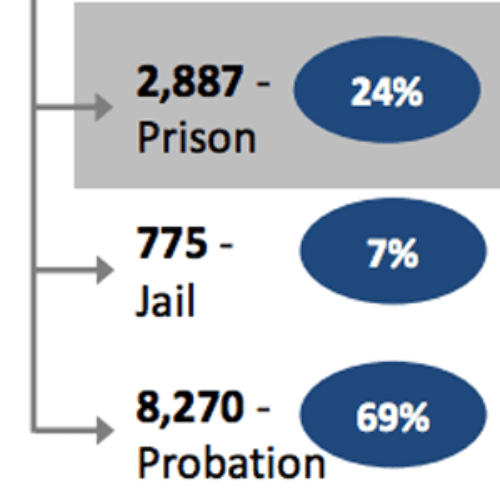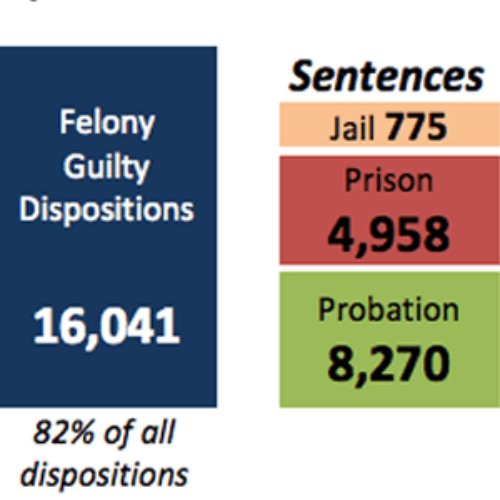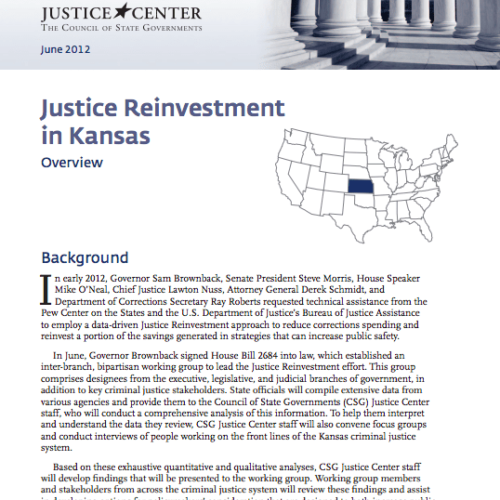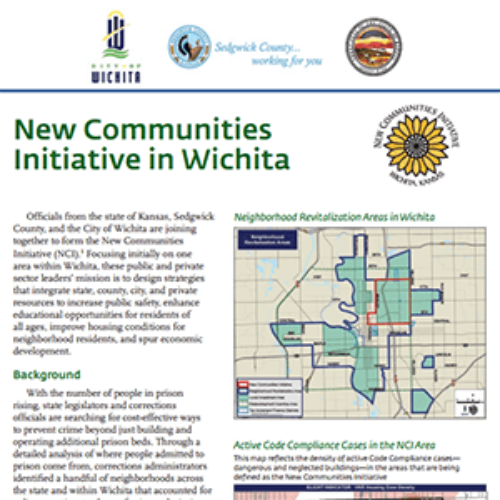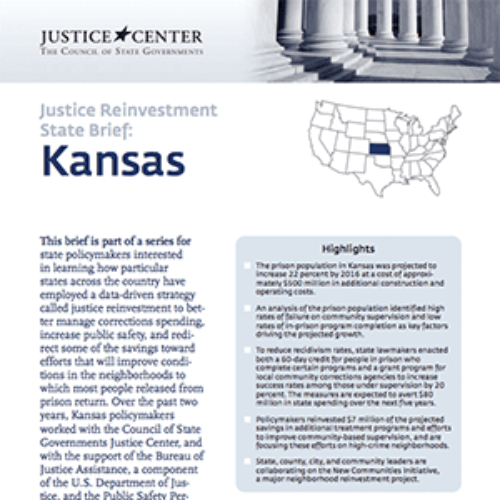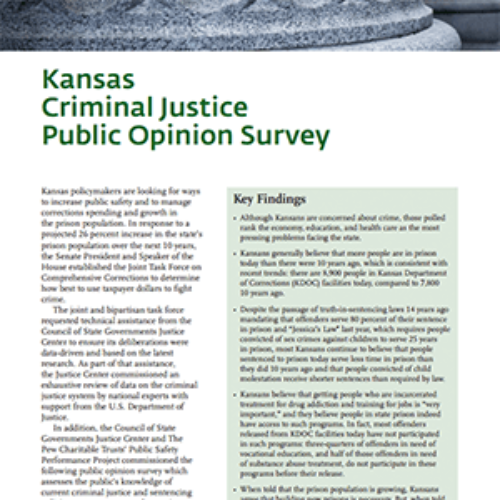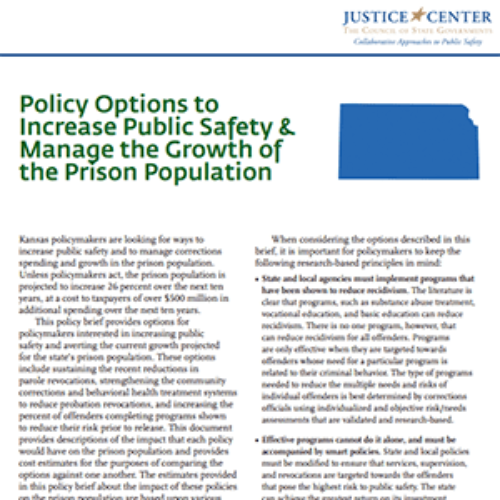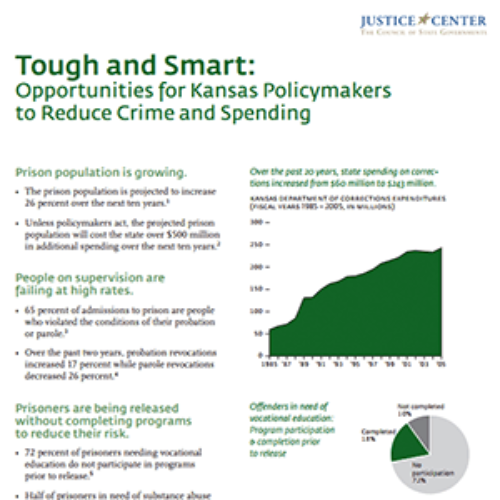Justice Reinvestment in Kansas
The Problem
Before March 2020, Kansas prisons were operating at 100 percent of capacity, and the prison population was projected to increase 14 percent by 2029 at an estimated cost to the state of $209 million. By the end of July, the population in Kansas Department of Corrections (KDOC) facilities fell to 82 percent of capacity due to a dramatic reduction in admissions. But this decrease will only be temporary without intervention.
How JRI Helped
In 2019, the Kansas legislature established the Kansas Criminal Justice Reform Commission. In January 2020, Kansas leaders took additional action to support the Commission by requesting support from the U.S. Department of Justice’s Bureau of Justice Assistance (BJA) and The Pew Charitable Trusts (Pew) to utilize a Justice Reinvestment approach to address system challenges. BJA and Pew approved Kansas state leaders’ request and asked the CSG Justice Center to partner with state leaders to collect and analyze state data and to assist in developing appropriate policy recommendations.
The Commission voted on recommendations in late November 2020, all but one of which was approved unanimously. The recommendations were provided to state leaders for consideration in early 2021. In May 2021, some of these recommendations were enacted in legislation that focuses on diverting people convicted of drug offenses and improving supervision by strengthening evidence-based practices.
Additional legislation was enacted in April 2022 that requires the Kansas Supreme Court to adopt rules for the establishment and operation of specialty court programs, allows people to petition to be removed from a drug registry, and ensures that people on supervision are supervised by only one entity.













